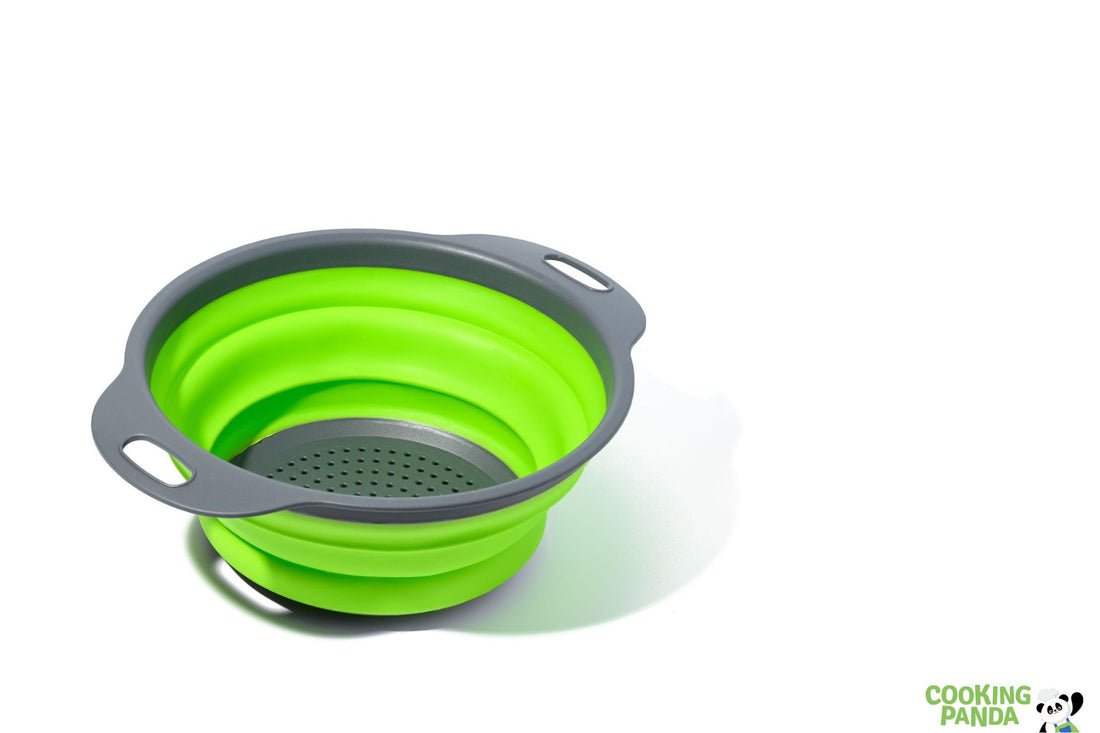Most plastic colanders are dishwasher safe, but always check the manufacturer's guidance. Many plastic colanders are designed to withstand the high temperatures and water pressure of a dishwasher.
A plastic colander is a versatile kitchen tool essential for draining pasta, rinsing vegetables, or even sifting dry ingredients. Being dishwasher-safe adds a layer of convenience for the user, integrating seamlessly into a kitchen routine that favors modern appliances for cleaning.
A plastic colander is a durable and low-maintenance choice compared to metal ones. Before using the dishwasher, check the heat tolerance specified by the manufacturer. A well-maintained colander ensures hygiene and functionality in your kitchen, playing a vital role in culinary preparations.
For those seeking the best collapsible colander, opting for plastic can provide convenience and space-saving benefits.
Benefits of Using Plastic Colanders
Plastic colanders offer a light and handy solution for draining various foods. Their ease of handling makes them ideal for everyday use in the kitchen. You can easily transport them from one place to another without any hassle, significantly reducing the strain on your wrists and arms while you cook.
Another significant advantage of plastic colanders is their versatility. Whether you're rinsing berries, draining pasta, or washing salad greens, they are perfect for managing various food items. The material ensures they can transition from one task to another effortlessly.
Concerning durability, these kitchen tools are built to last. High-quality plastic colanders resist cracking and breaking, ensuring you get long-term service from your investment. Regular wear and tear in the kitchen doesn't significantly affect their structural integrity, making them a staple in meal prep activities.
Are Plastic Colanders Dishwasher Safe?
Determining whether plastic colanders are dishwasher safe is crucial for maintaining the integrity of your kitchen tools and ensuring the safety of your dishes. Many colanders come with a label or symbol indicating dishwasher safety. It is essential to check the manufacturer's specifications before placing any plastic item in the dishwasher.
Exposure to high temperatures and harsh detergents in the dishwasher can cause plastic colanders to warp, melt, or release chemicals. Some plastics are designed to withstand the heat and detergents, but others are not. Generally, plastic items marked as "dishwasher safe" can be placed on the top rack to avoid direct exposure to heat from the dishwasher's element.
Best Practices for Dishwashing Plastic Colanders
Handwashing versus dishwashing often becomes a debate for kitchen tool maintenance. Maintaining the quality of your plastic colander is crucial for its longevity. Typically, most plastic colanders are marked as dishwasher safe, but this label can be deceiving. High heat and harsh dishwasher detergents can warp or damage the plastic over time. Handwashing with warm, soapy water is gentler and more advisable for preserving the colander's condition.
There are best practices for those who prefer the convenience of a dishwasher. Always place plastic colanders on the top rack where the heat and water pressure are less intense. Check the manufacturer's recommendations to ensure the plastic is heat-resistant, and opt for a mild dishwasher detergent. Regular inspection for signs of damage can prevent unwanted wear and tear. Adhering to these tips can prolong the use of your kitchen colander significantly.

Tips for Maintaining Plastic Colanders
Regularly inspecting your plastic colanders for cracks, warps, or melt marks is crucial to ensure they remain safe. Even the slightest damage can affect the colander's functionality and lead to further deterioration during the washing process. Discarding damaged colanders is important to avoid potential hazards such as melting pieces contaminating your food.
- To maintain the integrity of your plastic colanders, always store them in a cool, dry place away from direct heat sources.
- Avoid stacking heavy items on top of colanders to prevent warping.
- For dishwasher use, place colanders on the top rack to prevent exposure to intense heat, which could warp or damage the plastic.
- Consider washing by hand with mild soap and warm water to extend the lifespan of your colander.
Frequently Asked Questions
Can Plastic Colanders Go In The Dishwasher?
Plastic colanders can often be dishwasher safe, but it depends on the plastic's heat resistance. Check the bottom for a dishwasher-safe symbol. If there's no symbol, hand wash to prevent warping or melting.
What Symbols Indicate A Dishwasher Safe Colander?
Look for a dishwasher-safe symbol, which typically resembles a dish with water droplets or the words "dishwasher safe. " Absence of the symbol suggests manual cleaning is preferred to maintain integrity.
How Do I Prevent My Colander From Melting?
To prevent melting, place your plastic colander on the top rack, away from the heating element. Also, use a gentle dishwasher cycle and avoid high temperatures.
What Materials Are Best For Dishwasher Safe Colanders?
Stainless steel and silicone colanders are ideal for dishwashers due to their high heat resistance. BPA-free plastic can also be a good choice if labeled dishwasher safe.
Conclusion
Keeping your kitchen tools in top shape is essential for any home chef. Plastic colanders, thankfully, can often withstand the rigors of a dishwasher cycle. Be sure to check with the manufacturer for the final word on dishwasher safety. This simple habit will ensure your colander helps you drain and rinse for meals to come without any hassle or question of its cleanliness.

